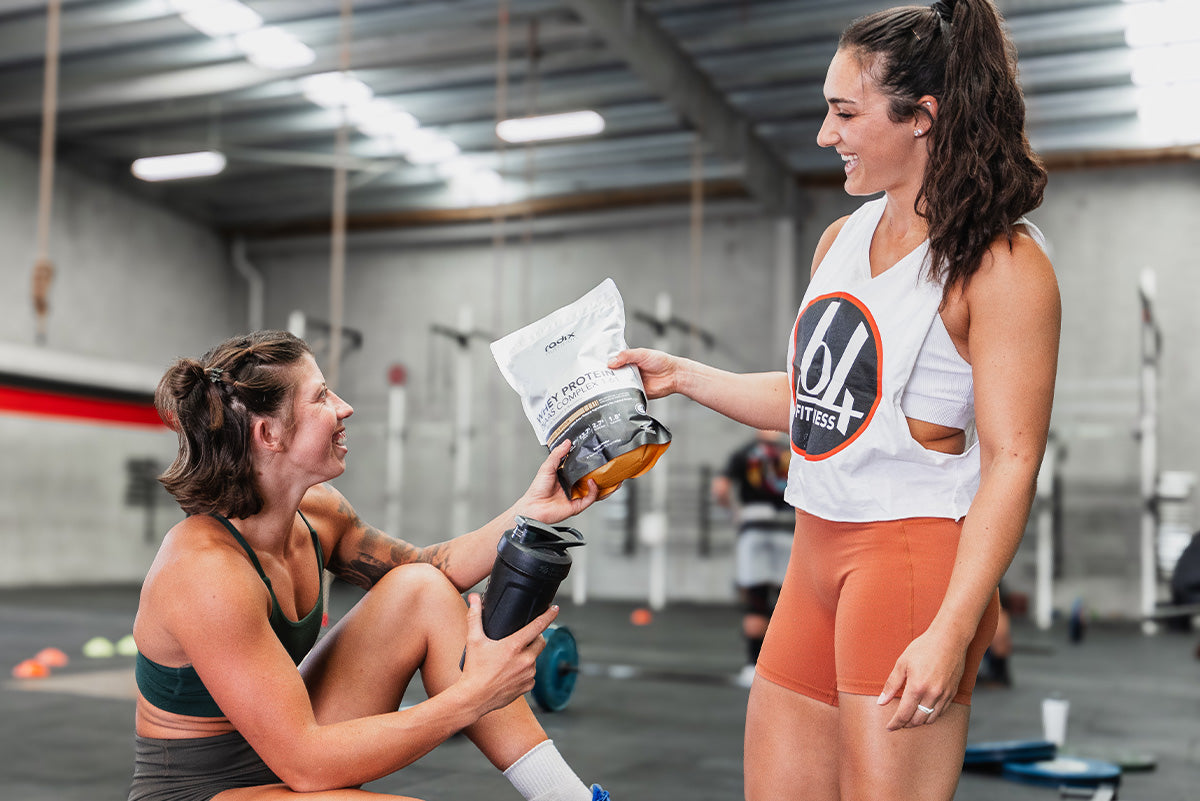When your body needs to perform, it consumes the carbohydrates and fats that are available to gain energy. That's why high-protein meals are great for after a workout when your muscle tissue switches from performance to recovery mode.
But it's important to have the right amount of after-workout recovery foods at the right time to get the best results. With high-protein, ready-made meals for Radix, you can incorporate high-quality protein into a busy training routine anywhere. Follow along to learn how to get the best results for your post-workout recovery with Radix Nutrition’s ready-made meals and super foods.
Why Post-Workout Nutrition is Critical
Whether you are an athlete or a casual gym-goer, post-workout nutrition is a vital part of training for several reasons.
Speeding Up Recovery
Proper nutrition plays a crucial role in accelerating recovery and minimising muscle soreness post-exercise. By ingesting the essential nutrients our ready-made meals provide, your body can significantly speed up recovery time and alleviate muscle soreness effectively.
Every one of our after-workout recovery foods is ready to eat in seconds and provides:
- Amino acids for muscle repair
- Carbohydrates for energy replenishment
- Anti-inflammatory vitamins to reduce tissue inflammation
Enhance Muscle Growth and Repair
Proper nutrition and protein intake boost muscle repair and growth by supplying amino acids, the building blocks for protein synthesis in muscle tissue. This process repairs micro-tears from intense exercise, leading to muscle growth and better athletic performance.
Certain vitamins and minerals that we include in our meals also aid in cellular energy production and reduce inflammation, which is crucial for efficient muscle recovery and growth.
Enhancing Performance
Carbohydrates are vital for restoring glycogen levels, ensuring the body has enough energy for future workouts. Adequate hydration replaces fluids lost through sweat and can be found in water, energy drinks and workout recovery smoothies. This targeted nutrition reduces muscle soreness, prevents fatigue, and enhances overall performance, allowing athletes to train more effectively and consistently.
The Protein Factor: Its Role in Muscle Recovery
Protein powder and amino acids provide the raw materials needed for muscle recovery and growth. Your body will always turn to protein first to repair muscle cells, If your body doesn’t have enough, it will take protein from the next available source, which just happens to be your muscles. It may sound strange, but your body will lose muscle mass to repair muscle tissue if you do not provide an external source of protein.
Types of Protein and Their Benefits
Different protein types contribute uniquely to muscle recovery:
Whey protein is fast-digesting and rapidly aids muscle repair post-workout. Casein is slower to digest and provides a sustained protein release, ideal for recovery during periods of fasting like sleep.
Plant-based proteins offer a full amino acid profile, support muscle repair, and cater to diverse dietary needs.
How much protein do you need depends on factors such as your body type, your training routine and your goals.
Protein Timing
Consuming protein immediately after a workout (within 15 minutes or so) is optimal because muscles are most receptive to nutrient absorption.
This timing capitalises on the body's anabolic state, facilitating rapid repair and growth of muscle tissue damaged during exercise, and maximises the effectiveness of protein synthesis for recovery and muscle building.
Your body needs different amounts of protein depending on your size and type of exercise. You should consume more protein if your goal is to gain lean muscle mass as opposed to if your primary form of exercise is endurance training like walking or running. It is best to choose a protein that is easily absorbed and digested, like the plant-based proteins you can get at Radix Nutrition.
Don't Forget to Rehydrate: The Importance of Fluids
As mentioned before, your body needs fluids to replenish electrolytes and water to help with digestion. This also works in conjunction with protein for muscle recovery.
Rehydration Basics
Hydration plays a pivotal role in post-workout recovery. The right amount of fluid intake helps replenish the water lost through sweat, maintains blood volume for nutrient transportation, and assists in metabolic processes.
Proper hydration also aids in muscle repair, flushes out toxins, and reduces the risk of muscle cramps and fatigue the following day.
Electrolytes and Their Role
Electrolytes like sodium and potassium in post-workout beverages are crucial for optimal recovery. They replenish the electrolytes lost through sweat, maintain fluid balance, and support nerve and muscle function.
Protein is vital for repairing and building muscle tissue, with different types, like whey or plant-based, catering to various needs and timings. Hydration is essential, as water replenishes fluids lost through sweat and aids in metabolic functions and muscle recovery.
Cool-Down Techniques
Beyond these, other techniques like stretching and cool-down exercises improve flexibility and blood flow, reducing muscle soreness. Adequate rest and sleep are also critical, as they allow the body to repair itself and adapt to the physical stress of exercise, completing a holistic recovery approach.
For all your post-workout recovery needs, contact us at Radix Nutrition to get the best ready-made meals and protein powders in New Zealand.
With fast shipping, we deliver straight to your door, so you can easily fit our ready-made meals into any fast-paced workout schedule.



